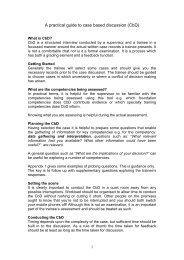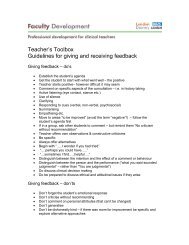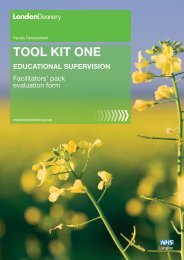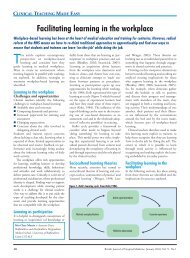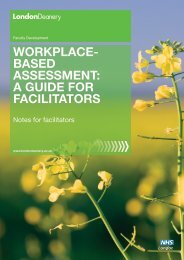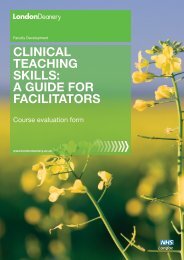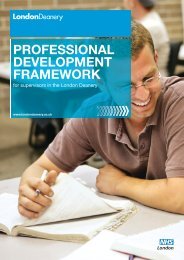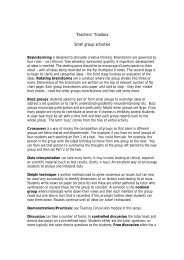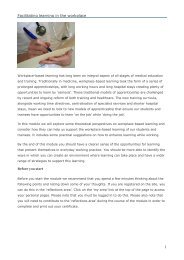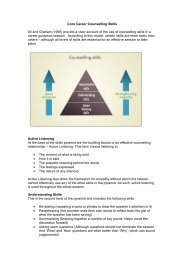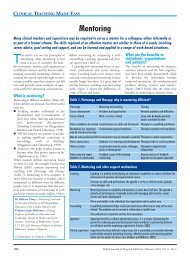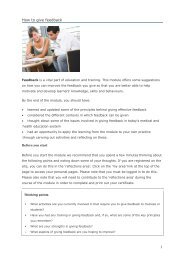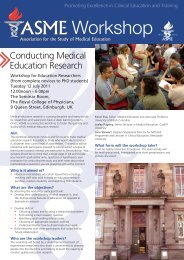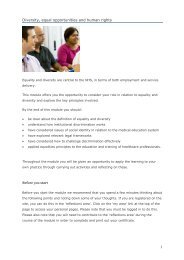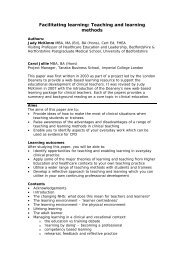Curriculum development module - Faculty Development - London ...
Curriculum development module - Faculty Development - London ...
Curriculum development module - Faculty Development - London ...
You also want an ePaper? Increase the reach of your titles
YUMPU automatically turns print PDFs into web optimized ePapers that Google loves.
Further reading<br />
If you are interested in the anthropological or sociological aspects which underpin<br />
learning in medical education then you may find reading two very different<br />
accounts of medical school training fascinating. The classic study of medical<br />
undergraduates is Howard Becker et al’s Boys in White (1961) and for a more<br />
recent study Simon Sinclair’s book Making doctors: an institutional apprenticeship<br />
(1997) is an account of undergraduate medical education at University College<br />
<strong>London</strong> (UCL). It covers aspects of ‘official’ and ‘unofficial’ life in medical school,<br />
focussing on the acquisition and transmission of knowledge, power and hierarchy,<br />
gender and race issues and how the students deal with the curriculum and their<br />
various clinical experiences.<br />
Learning activity and reflection<br />
Thinking about your undergraduate education, can you list some examples of the<br />
formal curriculum?<br />
And some examples of the hidden or unofficial curriculum?<br />
Are there any instances where these may conflict and impact on learning?<br />
My thoughts<br />
Some examples of the formal curriculum might include the prospectus, course<br />
guides, lecturers handouts etc.<br />
And of the unofficial curriculum might include Freshers’ week, rugby and other<br />
sports clubs and events, treating female or Asian students differently, the<br />
different ‘tribes and territories’ found in different specialties eg. surgery or general<br />
practice<br />
Conflicts and impact on learning might include examples where drinking the night<br />
before means that students come into teaching sessions late (or not at all in the<br />
morning), some teachers regularly time the first teaching session at 0930 because<br />
they know that if they start teaching earlier, then few students will be there.



